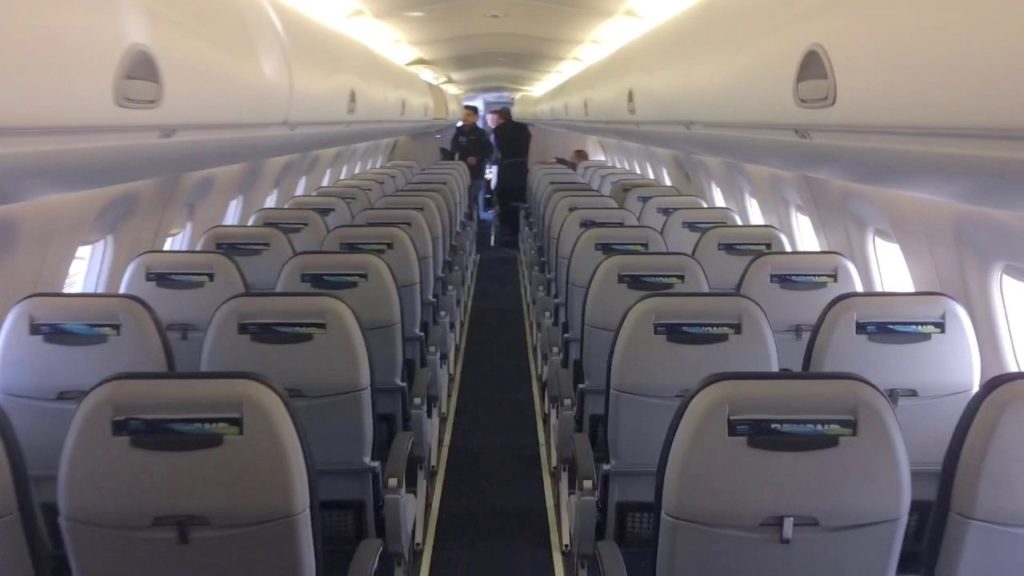Daily Business Report-Sept. 9, 2019
Rendering of Liberty National’s East Village mixed-use project site. (Courtesy of Liberty National)
Liberty National Acquires more land to develop
40-story mixed-use project in Downtown’s East Village
Liberty National Corp. has purchased an East Village property from the Salvation Army that it will combine with additional acreage to build a mixed-use project featuring a 40-story residential tower, two mid-rise buildings of six and seven stories each and ground-floor commercial space spread across the three buildings.
The acquired site is at Park Boulevard and Broadway. The entire project is bounded by Park Boulevard, 13th Street, Broadway and C Street.
The residential component will include 553 1-bedroom units, 86 2-bedroom units, and one 3-bedroom unit. There will also be 16,485 square feet of new multi-tenant commercial/retail space. The two smaller buildings will be constructed during Phase 1 and the tower during Phase 2 of the development.
The project will include 634 individual parking spaces plus 60 tandem spaces situated in five levels of subterranean levels and seven above-grade levels. Plans also call for nearly 40,000 square feet of common outdoor open space—more than three times the city’s required amount, residential storage areas, plus open pet space for residents.
“There remains a housing shortage in San Diego, and we think as this sought after region continues to grow and attract talent that this new project will appeal to a wide range of residents while offering a special living opportunity that is very close to businesses, amenities and the many great coastal and family attractions San Diego has to offer,” said Randy Williams, vice president with Liberty National.
The project announcement included vocal support from Major Henry Graciani, general secretary of the Salvation Army’s Adult Rehabilitation Centers Command, who said Liberty National donated nearly $300,000 to help fund the agency’s Adult Rehabilitation Center in San Diego.
The site acquisition announcement was issued by Cushman & Wakefield, who handled the sale.
___________________

Veterans Administration yanks authority from
California agency overseeing veterans’ education
Another potential showdown between California and Trump Administration
By Felicia Mello | CALmatters
The U.S. Dept. of Veteran Affairs has canceled its contract with a California state agency that approves colleges to receive GI Bill funds, after a lengthy dispute over how to regulate for-profit and out-of-state schools.
The VA said Friday it will take over responsibility for deciding which California schools qualify to receive military education benefits, a role it has traditionally delegated to states.
But state officials insist that state law authorizes them to carry out those responsibilities and say they will continue to do so — setting the stage for another potential showdown between California and the Trump administration.
The dispute comes after the VA pushed the California State Approving Agency for Veterans Education to approve the payment of GI Bill benefits to Ashford University, an online for-profit college. California Attorney General Xavier Becerra is suing Ashford, alleging the school lied to prospective students about financial aid and job outcomes, and engaged in illegal debt collection practices. State regulators said they would not act on the university’s application while the lawsuit is pending.
In a letter to the state agency, the VA said its performance had “significantly declined to an unacceptable level” over the past three years. It said the agency had failed to complete required surveys of schools and approve educational programs on military bases.
The letter also cited the agency’s decision not to approve Ashford.
The state agency’s “continued refusal to adhere to the requirements of the cooperative agreement has negatively impacted the ability of veterans and qualifying dependents to maximize their utilization of VA educational assistance benefits,” wrote Charmain Bogue, executive director of the VA’s education service.
Within California, the agency oversees the quality of 1,600 colleges and training facilities that serve military veterans — inspecting the schools and verifying information about their financial stability, job placements and accreditation. It is under the California Department of Veterans Affairs, known as CalVet.
“CalVet takes very seriously our responsibility to protect taxpayers and veterans from waste, fraud and abuse while ensuring veterans in California receive the education and training they are paying for with their earned GI Bill benefits,” said department spokeswoman Lindsey Sin. She added that the federal VA “has taken exception with many of our actions over the years and continues to disagree with our efforts to protect veterans’ educational benefits in California.”
Sin called the letter “riddled with inaccuracies.”
The VA’s letter left open the possibility that it would sign a new contract with the California agency if the agency worked to “resolve all outstanding issues.”
In the meantime, VA spokesperson Christina Mandreucci said the department will work closely with the state agency to ensure California veterans can use their education benefits at approved schools. The decision will take effect Oct. 1, she said.
CalMatters.org is a nonprofit, nonpartisan media venture explaining California policies and politics. This story and other higher education coverage are supported by the College Futures Foundation.
___________________
Biotech lab space sees shift in
emerging San Diego submarkets
For some time, Torrey Pines has been home to the largest life science companies wanting to be located near UCSD and other renowned research institutes. But over the last few years, demand for lab space has accelerated, spurring ground-up construction and office-to-lab conversions in the surrounding traditional office submarkets such as Sorrento and UTC, according to a new report from JLL.
The biotech lab market is now at 19.2 percent of the 80.3 million square feet office inventory and is projected to be 21 to 22 percent of the office inventory by 2022 with lab projects slated in the pipeline. As result of established biotech companies hitting record profits and VC funding pouring into the sector with a total of $3.2 billion since the beginning of 2018, lab space as a percentage of total office supply in San Diego has risen and will continue to rise, the report said.
Although Torrey Pines has historically had the greatest percentage of lab, Sorrento Mesa and UTC have recently been at the center of the growth in new lab supply. Since 2016, and projected through 2022, Sorrento Mesa will have added nearly 2 million square feet
of lab, bringing the total inventory to over 5.7 million square feet. Much of the new lab supply in Sorrento Mesa and UTC over the past few years has been office or industrial-to-lab conversions, eating away at the office and industrial inventory, the report said. As lab supply climbs, this is changing the market dynamics for traditional office users having to scramble for high-quality large block space.
___________________

Alaska Airlines opens new air routes
to Central California and Oregon
San Diego International Airport will soon offer nonstop service to San Luis Obispo and to Oregon’s Redmond/Bend region on Alaska Airlines.
“We are always looking for opportunities to provide new, convenient, nonstop routes to San Diego,” said Kim Becker, the Airport Authority’s president/CEO. “We are excited to partner with Alaska Airlines on these new flights that will better connect our customers with key destinations in the West.”
Flights to the new routes start Jan. 7, 2020, with tickets already on sale. The new service offers greater travel flexibility for students, tourists and business travelers heading to destinations on the West Coast. Both routes will operate daily year-round with Alaska’s Horizon Air as the operating carrier, using Embraer 175 jets, an aircraft featuring only window and aisle seating – and no middle seats.
“We’re excited to offer even more nonstops between vibrant Pacific Northwest communities and our growing hubs in California,” said Brett Catlin, Alaska Airlines managing director of capacity planning and alliances.
The San Luis Obispo route on the Central California Coast and renowned winery region is home to the 22,000-student California Polytechnic State University, some 230 miles south of San Francisco and 300 miles north of San Diego.
The Redmond location is nearly 1,000 miles north of San Diego in the Bend-Redmond high desert region east of Oregon’s Cascade Range. The area hosts two public college campuses and is popular for its outdoor recreational opportunities, including skiing, fishing and white-water rafting.
Alaska Airlines also announced it will be increasing the frequency of flights between five existing San Diego routes:
Orlando-San Diego: Will increase flights starting January 7 to daily nonstop service
Boise-San Diego: Will add a second daily flight starting March 19
Santa Rosa-San Diego: Will add a second daily flight starting March 19
San Jose-San Diego: Will increase nonstop service, starting March 19, to six flights daily
Boston-San Diego: Adding a second daily flight, starting May 21


